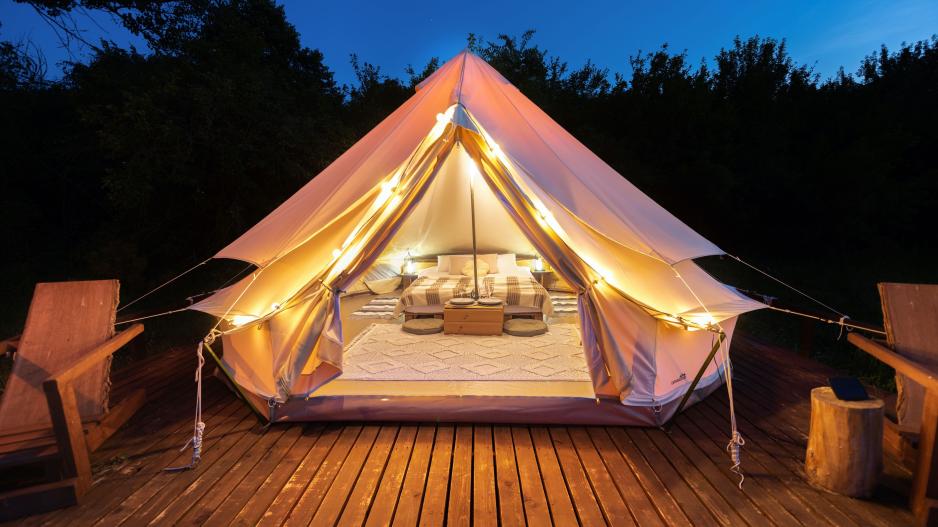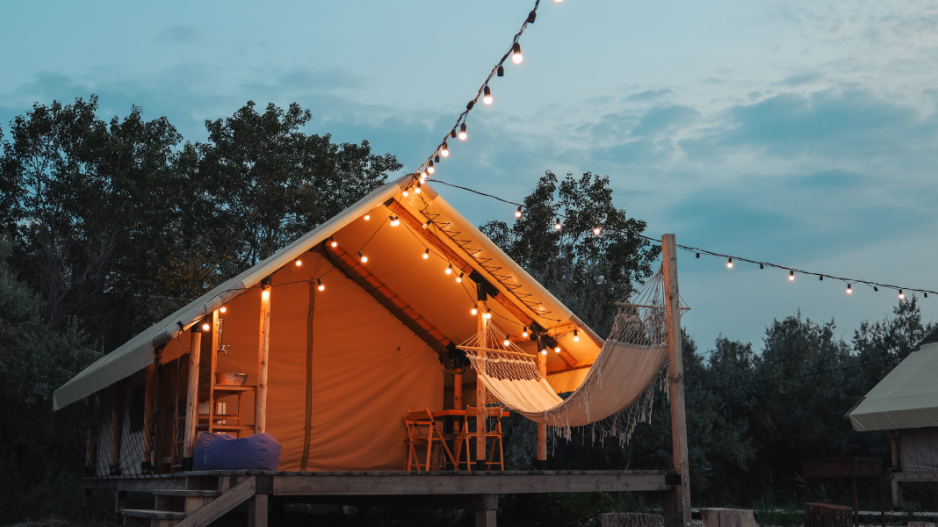Cyprus Parliament Revisits 'Glamping' Legislation
A Revival of the Glamping Bill After Months of Deliberation and Modifications
In the Committee of Energy, Commerce, Industry, and Tourism, the bill on the operation of Tourist Campsites and Luxury "Glamping" Campsites was under discussion again yesterday, after more than seven months.
The bill, prepared by the Deputy Ministry of Tourism since 2021 and submitted to the Parliament on February 24, 2022, was rejected in the summer of 2022 by the Plenary of the Parliament. Subsequently, the Deputy Ministry made changes incorporating the recommendations of the Parliamentary Committee on Commerce, Industry, and Tourism, and resubmitted the bill in November 2022.
In December 2022 and July 2023, after being discussed again in the relevant parliamentary committee, and while it was ready to be led back to the Plenary, it was ultimately not done. The vote was postponed, and the bill returned for discussion in Parliament after more than seven months.
After two years of discussions about this particular bill, a conclusion has yet to be reached, at a time when several investors are interested in creating luxury camping facilities.

The purpose of the bill is to amend the Law on the Regulation of Establishment and Operation of Hotels and Tourist Accommodations, to modernize the provisions governing the creation and operation of tourist campsites, so they can be classified into categories, namely luxury, first-class, second-class, and without a class, in the same way as other categories of tourist accommodations.
Additionally, the proposed regulations aim to regulate the creation and operation of luxury "Glamping" campsites, a new international trend in tourism that is rapidly developing globally and associated with the experience of luxurious accommodation in nature. These developments are expected to enrich the tourist product, further develop mountainous and rural areas, and attract new segments of the tourist market.
The bill aims to upgrade tourist campsites by categorizing them into luxury "Glamping" campsites as the top category, followed by luxury tourist campsites, first-class campsites, and second-class campsites.
Essentially, the goal of the provisions added or modified during the revision of the original bill is to ensure the protection of wildlife and the natural environment, emphasizing the strict adherence to the management plans of the "Natura 2000" network areas. The aim is to minimize any environmental impact from the operation of the campsites. The original philosophy of the bill regarding the operation mode and services offered by the luxury campsites remains unchanged.
Additionally, a provision was incorporated by the Deputy Ministry of Tourism, making it mandatory for Glamping luxury campsites to secure the European Eco-label EU Ecolabel within two years of obtaining their license and beginning their operation. This standard ensures that the various activities of the campsite protect the environment and wildlife.






